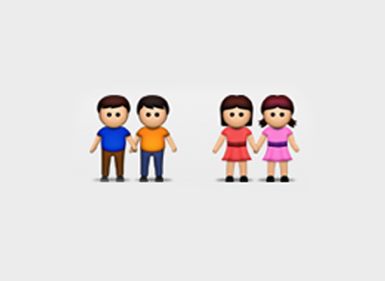
Science magazine reports on a study lending support to the existence of a gene for homosexuality. The study, led by J. Michael Bailey and Alan Sanders, was published this week at Psychological Medicine. The scientists analyzed the genomes of 409 pairs of gay brothers from 384 different families. A genome-wide linkage scan led to the identification of two potential markers, one on chromosome Xq28 (which had been reported in a previous smaller study) and another in a region of chromosome 8. Bailey, for one, was surprised to find any linkage:
Bailey says he went into the project skeptical, largely because Hamer had studied just 38 pairs of gay brothers. “I thought that Dean did a fine but small study, but if I had to bet, I would have bet against our being able to replicate it.”
Samantha Allen at The Daily Beast is unimpressed:
If you don’t see gay people celebrating this news in the streets, understand that we’ve been hearing news about a potential biological basis for homosexuality for a long time now. In 1991, neuroscientist Simon LeVay suggested that small differences in the size of certain cell clusters in the hypothalamus could influence sexual orientation in men. In 1993, geneticist Dean Hamer published a paper in Science that claimed that genetic markers on the X chromosome could influence the development of a same-sex orientation in men…
As the discipline of genetics changed, so too did the scientific approach to homosexuality. In 2012, scientists examined the possibility that variations in hormone levels in the womb could influence the expression of genes that affect sexual orientation, a line of inquiry that falls under the emerging sub-discipline of epigenetics. The popular media, once so easily convinced by LeVay that homosexuality resulted from brain size and by Hamer that homosexuality was genetic, promptly changed its tune to declare that homosexuality was now epigenetic. Hooray? If it’s hard to get excited about these studies, it’s because, at this point, biological explanations for homosexuality are like iPhones—a new one comes out every year.
Bailey and Sanders acknowledge their work has limitations. Even the strongest linkage on Xq28 wasn’t statistically significant, and genome wide association studies are better at homing in on genes for a trait than the linkage study they performed this time:
Sanders admits that the strongest linkage identified from an isolated genetic marker on Xq28 doesn’t clear the threshold for significance. But he contends that the case is bolstered by neighboring markers, which appear to be shared at higher rates between pairs of gay brothers. “The convergence of the evidence pointed towards” Xq28 and chromosome 8, he asserts.
Bailey and Sanders may soon have more data to back their claim—or refute it. They are now working on a GWA study that includes genetic data from the just-published work plus DNA samples from more than 1000 additional gay men. Based on the results published this week, “it looks promising for there being genes in both of these regions,” Bailey says, “but until somebody finds a gene, we don’t know.”
Meanwhile, the New Scientist worries about the implications of the research:
On the one hand, if sexual orientation is something people are born with, and cannot change even if they want to – akin to skin colour or handedness – this should overturn the notion that people choose to be gay and could equally well choose not to be. That knowledge would help rebut those who suggest that gayness is the result of a morally unacceptable decision, or a psychological disorder. It might also help people who struggle to understand or declare their own homosexuality.
On the other, some could try to redefine homosexuality as a biological abnormality. There is no way to change people’s sexuality, but if key genes are found, it might be possible to detect homosexuality before birth, or to “cure” people by altering those genes.


